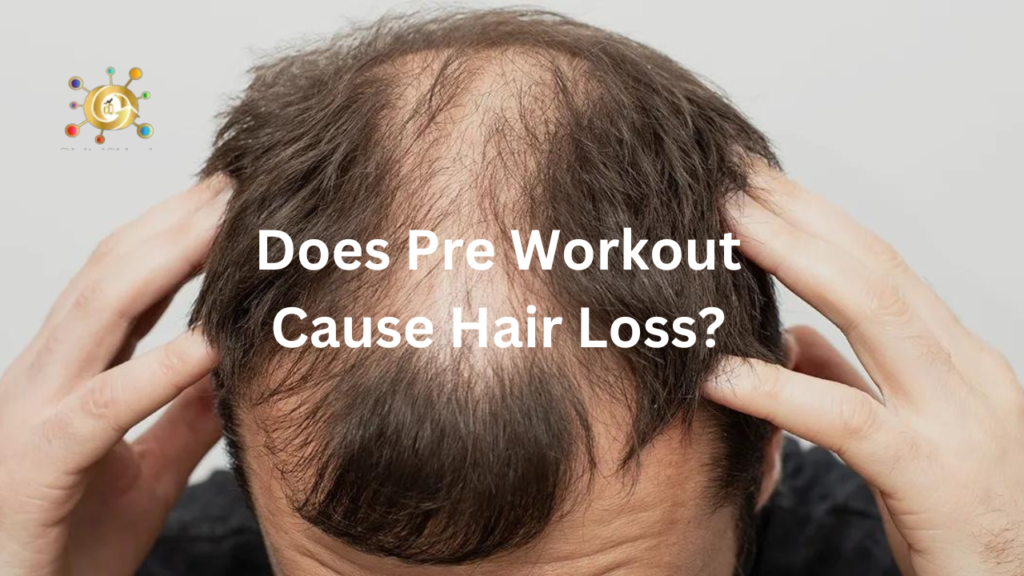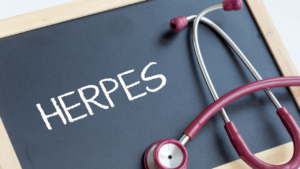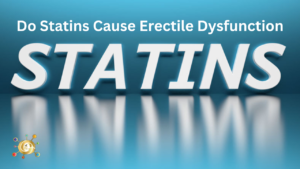Pre-workout is something that a lot of men swear by. The increased energy levels, the muscle growth, the collection of ingredients that help you hit the gym harder — many men feel great after using it. But there’s a side to pre-workout that may also be hard to deny: its effect on the health of the rest of your body, precisely your hair. Does pre-workout cause hair loss? Maybe.
There are a lot of opinions out there about whether pre-workout is good for your health, whether it delivers on the promises of increased muscle mass, and whether it’s safe to consume. We’re not here to legislate the debate today — not in its totality. Pre-workout may leave your muscles glistening, but we’re only here to discuss whether it might do the same to your scalp.
If you’ve been on pre-workout for some time and are worried that you’re seeing signs of hair loss, you may have identified a connection between your hair and what you’re putting into your body.
Determining whether your hair loss is due to your pre-workout isn’t all that simple, but as you’re about to find out, there are plenty of adverse effects, risks, and unknowns associated with pre-workout that might leave you down a few follicles.
CARE FOR YOUR HAIR 💆♂️
Get medication to your doorstep if prescribed.
FREE CONSULT
Pre-Workout: What it Does and Potential Side Effects
The first thing we have to discuss is what pre-workout is, and that’s a hard place to start because pre-workout isn’t all that well-defined.
As a supplement, pre-workout needs more rigorous research, testing, and approvals by the FDA, and that lack of FDA approval is more than just a political issue. Supplements aren’t like the medications you get prescribed or over-the-counter — instead, they’re often created, packaged, and even labeled with far less rigor.
That said, pre-workout is often just a collection of ingredients with alleged medical benefits designed to improve your workout experience when taken as directed. Some elements are common in pre-workouts, including caffeine, creatine, amino acids, beta-alanine, nitric oxide agents, and proprietary supplemental ingredients.
Instructions usually tell you to mix it with a liquid (typically water) and consume it 30 minutes before you hit the gym.
As far as the common side effects go, pre-workout has been shown to cause the following:
- A tingling sensation in your extremities
- Nausea and diarrhea
- A racing heart
- Increased blood pressure
You’ll notice we didn’t put hair loss on that list. Well, there’s a reason for that.
Does Pre-Workout Cause Hair Loss?
Because supplements aren’t all the same, we generally can’t lump them all together. That means answering this question with a simple yes or no isn’t possible.
What we can do instead is give you a window into what we know about some of the ingredients that are most common in pre-workout. And as much as we caution about safety with supplements, the facts favor the most common elements.
Caffeine
Arguably, the best thing on this list for your hair is caffeine. Studies have shown that caffeine can counter the harmful effects of testosterone on your hair follicles. Now, studies are typically done on strands removed from the body in impractical ways, and long-term treatment with caffeine-based topical products hasn’t been demonstrated yet. And to date, there aren’t many independent studies with approved caffeine treatments. But it’s a promising start, even if your supplement isn’t the hero here.
Amino Acids
Amino acids are suitable for your hair. While science doesn’t understand their function in hair health, they do understand that amino acids are essential in preventing anemia, and iron is vital for hair growth.
Beta-alanine
It’s unclear what the relationship between beta-alanine and hair growth is. One 2006 study looked at the effects of beta-alanine and creatine on testosterone levels and found no changes caused by beta-alanine. That suggests taking beta-alanine probably doesn’t put you at risk of increased testosterone levels or increased levels of the hair-killing hormone DHT.
Nitric Oxide Agents
Luckily, we can round out this list with some good news, as nitric oxide is an excellent antioxidant for reducing the detrimental effects of DHT on your hair. Now, that data has to do with naturally occurring nitric oxide, which is to say that we didn’t find any conclusive evidence to suggest supplemental nitric oxide leads to healthy hair. But it would at least appear that it can’t do any harm, either.
How the Pre-Workout Ingredient Creatine May Cause Hair Loss
As for creatine, there’s little connection between this supplement and hair loss.
Most claims about the link between creatine and hair loss come from a single study of rugby players. The study looked at college-aged men who played rugby and had a daily creatine supplement intake of 25 grams for a week and then five grams for two more weeks.
That study did find increases in DHT, but the investigation hasn’t been replicated. In a dozen other studies, only a couple have found indications of any potential connection, and they were all considered insignificant.
Now, that research looked at DHT, but it also looked at forms of testosterone itself. So, if creatine is causing hair loss, it’s not doing it by any identifiable avenues that have been studied.
Can I Reverse Hair Loss from Pre-Workout?
So what happens if you somehow suffer hair loss from pre-workout or one of its ingredients? Well, the first thing you should do in these circumstances is talk to a healthcare professional about your symptoms and do it quickly.
If your hair loss is related to pre-workout supplements and has the signs of telogen effluvium — a type of hair loss caused by a stressor to your hair or scalp — your hair will likely grow back once you knock off your pre-workout. Telogen effluvium typically resolves itself once the stressor or trauma that caused it is gone.
But things may be more complex. Regardless of a pre-workout link, your hair loss may be due to a condition like male pattern baldness. Depending on your cause of hair loss, you may have options to use medications that protect your hair or reduce hair loss from conditions like androgenic alopecia.
Two widely accepted medications can help with hair loss: finasteride and minoxidil.
Minoxidil is the generic version of Rogaine, and studies show that topical minoxidil increases flow to your hair follicle’s blood vessels, stimulating your hair growth.
Minoxidil can treat telogen effluvium symptoms, as well as androgenetic alopecia, another name for male pattern baldness. Studies show that with minoxidil, you can see a 12 to 18 percent increase in growth for about 48 weeks.
Finasteride (generic Propecia) can reduce specific hair loss symptoms by lowering the hormone levels responsible for androgenetic alopecia. Studies have shown that finasteride can reduce levels of the hormone DHT by up to 70 percent for many men, stopping hair loss’s progress.
Pre-Workout and Hair Loss: What to Do Next
If you see common sense connections between a new supplement and significant bodily changes, shelve the stuff and talk to a healthcare provider.
Whether pre-workout or alopecia, you’ll be happy you had the right resources to help.
Speaking of resources, our hair health page has information on the causes of hair loss, treatments for hair loss, and other things you might want to know about losing hair. We also offer medication and other services — learn more here.




